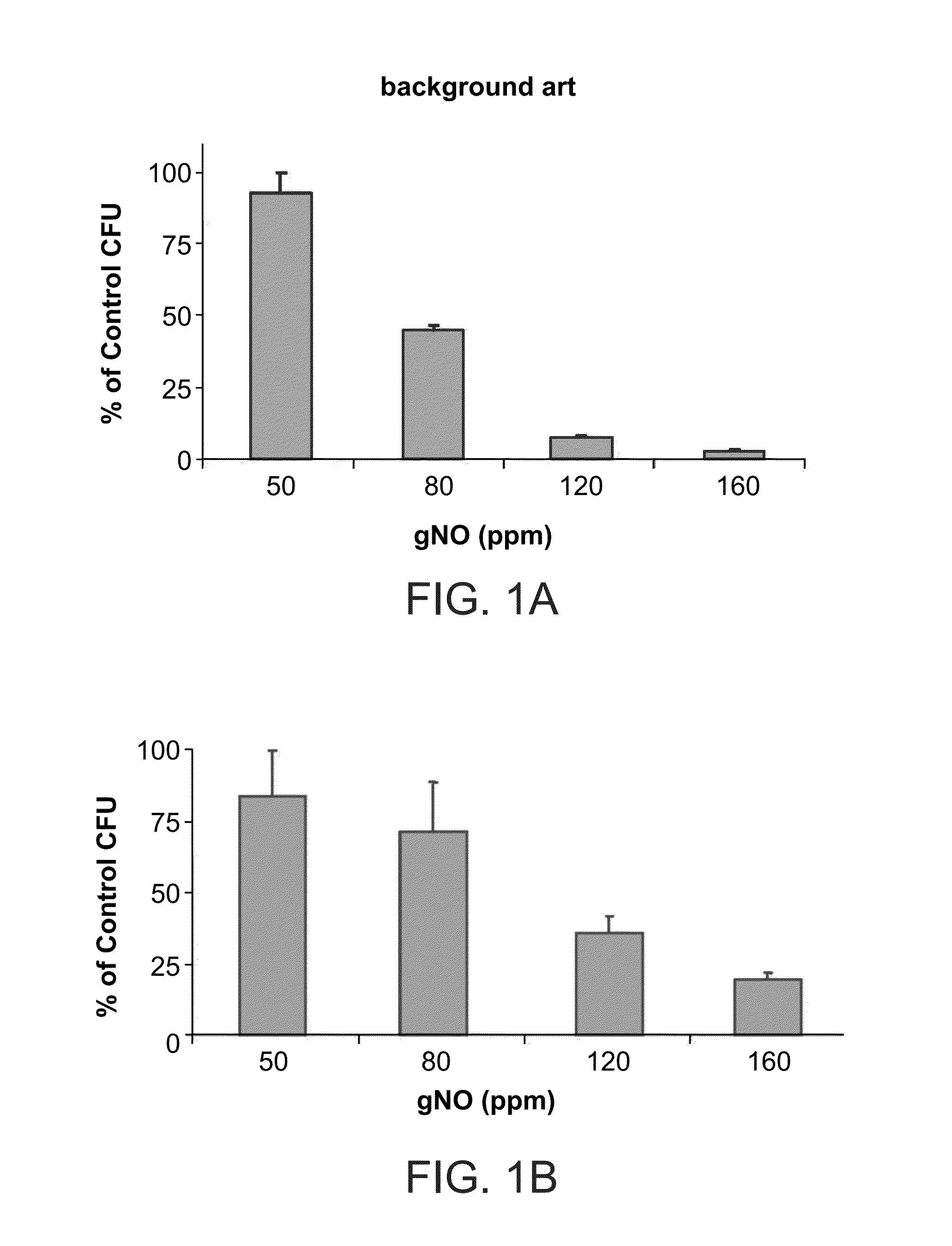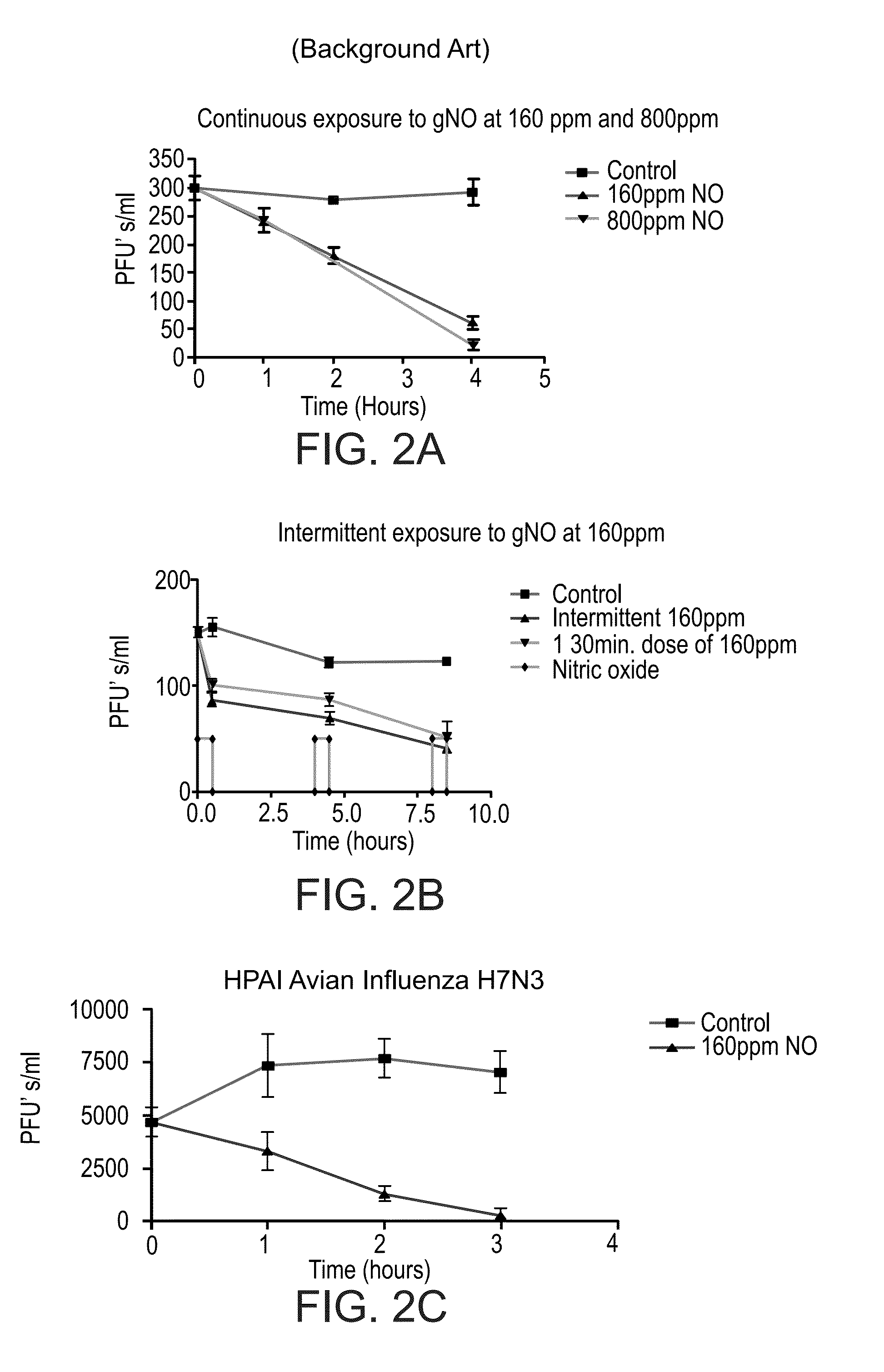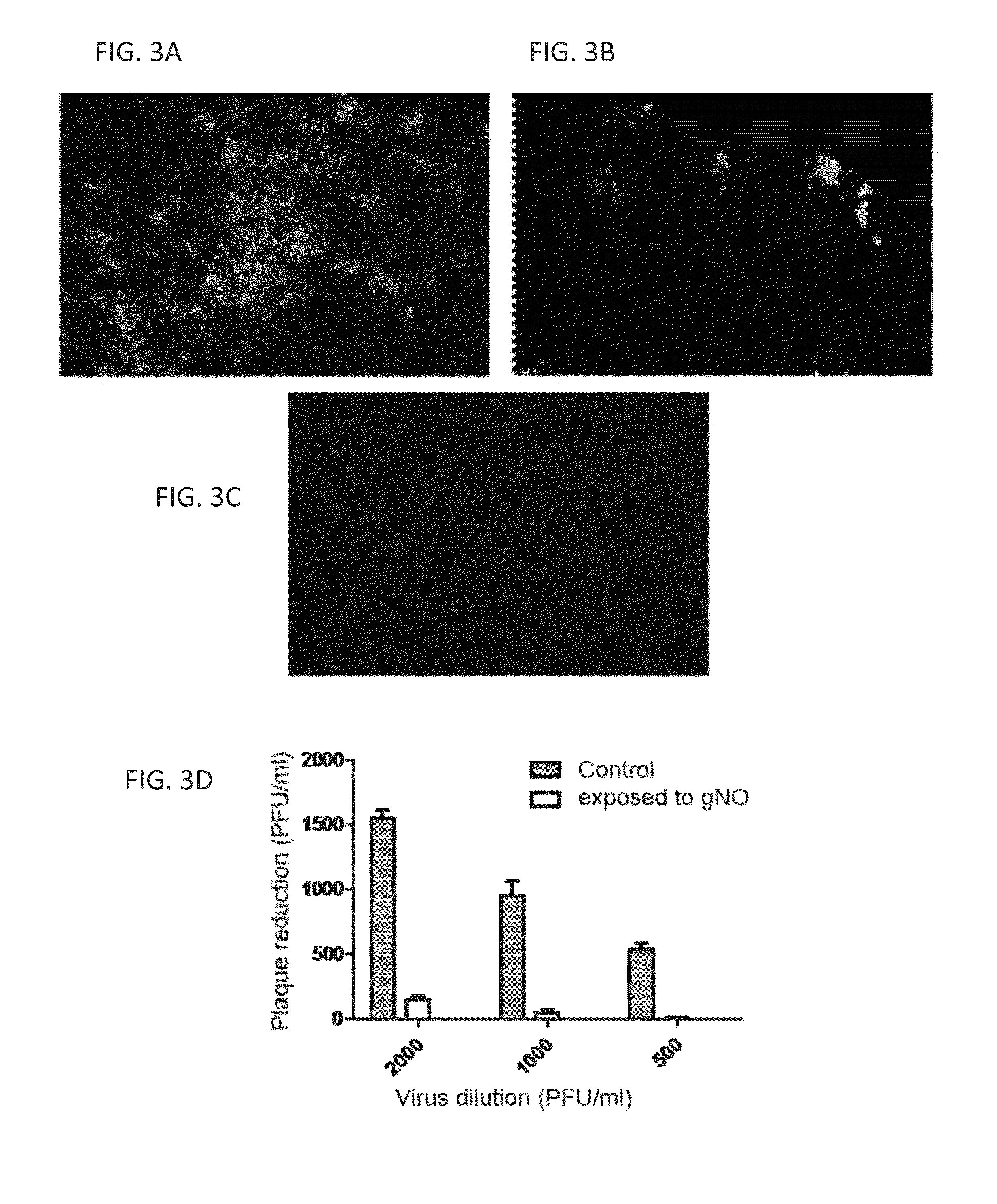Inhalation of nitric oxide for treating respiratory diseases
a technology of respiratory diseases and inhalation of nitric oxide, which is applied in the field of therapy, can solve the problems of complete and total cell death of all bacteria, and achieve the effect of ensuring
- Summary
- Abstract
- Description
- Claims
- Application Information
AI Technical Summary
Benefits of technology
Problems solved by technology
Method used
Image
Examples
example 1
Background Art
Determination of Effective Antimicrobial Level of gNO
[0351]The direct effect of gNO on bacteria was studied by determining the concentration of gNO which is lethal for microbes. Once an optimal dose was estimated, timing study was conducted to optimize the duration of exposure of the microbes to gNO.
[0352]For these initial studies, highly dense inoculums of P. aeruginosa and S. aureus suspensions (108 chum) were plated onto agar plates. These plates were then exposed to various concentrations of gNO in an exposure device in order to evaluate the effect on colony growth.
[0353]FIGS. 1A-B present bar-plot showing the gNO dosage curve on as measured for S. aureus (FIG. 1A) and P. aeruginosa (FIG. 1B) grown on solid media, wherein relative percentage of growth of colony forming units (CFU) at 50, 80, 120 and 160 parts per million (ppm) of gaseous nitric oxide (gNO) compared with growth of CFU in medical air (100%).
[0354]As can be seen in FIGS. 1A-B, the results confirmed th...
example 2
Determination of Effective Antiviral Level of gNO
[0363]The efficacy of treating human influenza A with gNO has been studied. Two strains (H3N2 and H7N3) of the virus were studied and showed that treating influenza virions or incubated cells with 160 ppm exogenous gNO reduced not only viral replication but also their infectivity in a Madin-Darby Canine Kidney (MDCK) cell model of infection. gNO has been demonstrated as an effective anti-viral agent in both human Influenza A and highly pathogenic avian influenza.
[0364]The viruses used for the following experiments were from freezer stocks containing 1×106-1×107 pfu's / ml.
[0365]A standard plaque assay was used for the study. Frozen stock solutions of virions were diluted 1:10 in PBS and 3 ml were placed in each well of six well trays. The samples were either exposed to 160 ppm gNO or medical air at 37° C. Following exposure 0.5 ml was inoculated onto confluent MDCK cells, grown in six well trays, and incubated at 37° C. for 1 hour. The ...
example 3
Administration of gNO to Healthy Human Subjects
[0372]Cohort:
[0373]10 healthy adult volunteer subjects (5 males, 5 females), aged 20 to 62 years, were enrolled in the study after screening their medical history, a physical examination, pulmonary function tests and blood values. Exclusion criteria included individuals less than 19 years of age, pregnant females and unwilling to practice birth control during the study, diagnosed with pulmonary disease, epistaxis, hemoptysis, methemoglobinemia, organ transplant recipient or receiving antibiotic therapy.
[0374]Regimen and Post-Treatment:
[0375]After obtaining informed consent, treatment was initiated within 5 days of enrollment. Subjects were housed in a hospital ward and received 160 ppm gNO for 30 minutes every four hours (Q4h), five times a day, for five consecutive days by inhalation. Subjects returned for follow-up evaluations 3, 7 and 21 days after the final gNO administration. Subject safety was determined by monitoring vital signs,...
PUM
 Login to View More
Login to View More Abstract
Description
Claims
Application Information
 Login to View More
Login to View More - R&D
- Intellectual Property
- Life Sciences
- Materials
- Tech Scout
- Unparalleled Data Quality
- Higher Quality Content
- 60% Fewer Hallucinations
Browse by: Latest US Patents, China's latest patents, Technical Efficacy Thesaurus, Application Domain, Technology Topic, Popular Technical Reports.
© 2025 PatSnap. All rights reserved.Legal|Privacy policy|Modern Slavery Act Transparency Statement|Sitemap|About US| Contact US: help@patsnap.com



